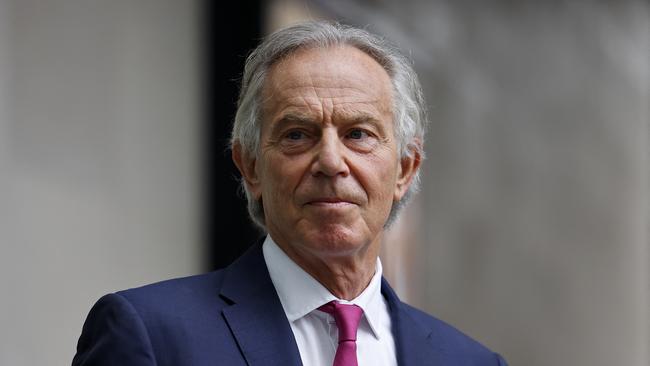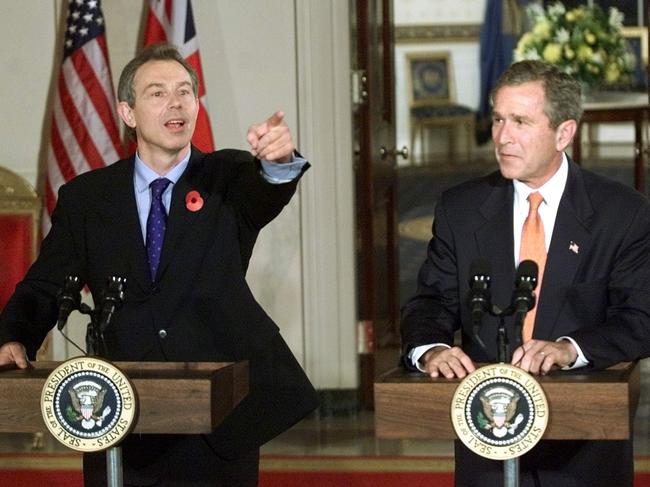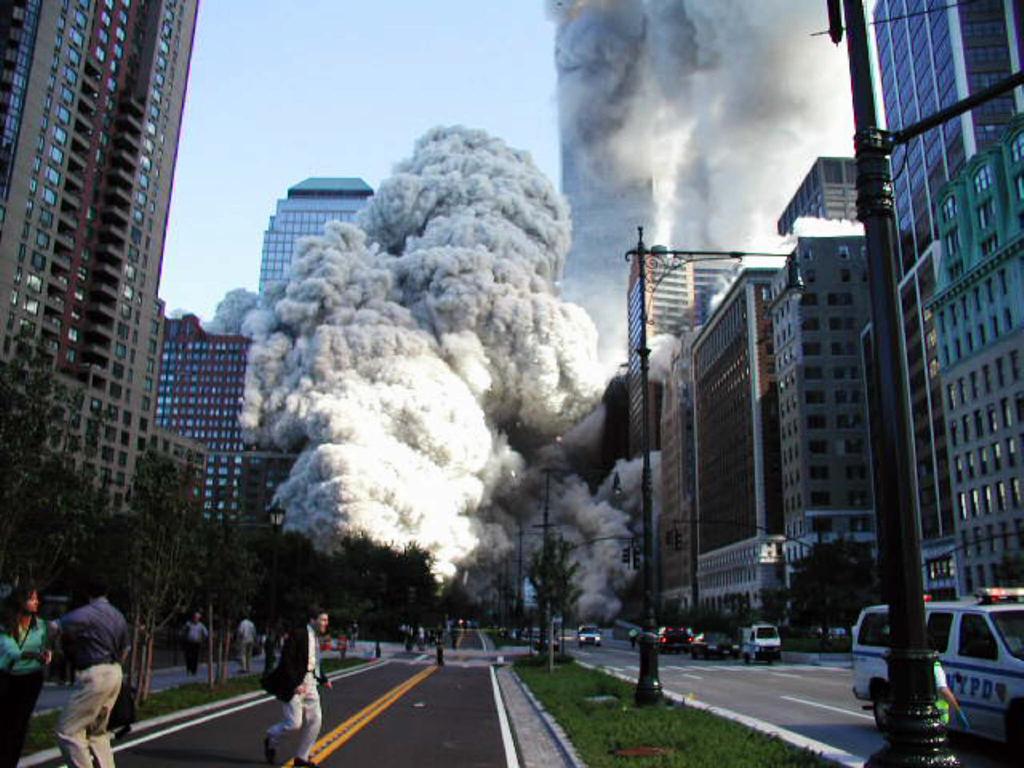Decision to leave Afghanistan ‘imbecilic’, damages the West: Tony Blair
The former British PM defended the invasion of Afghanistan 20 years ago and said the West needs to commit to foreign intervention ‘through thick and thin’.

Former British prime minister Tony Blair has defended the invasion of Afghanistan 20 years ago and said the West needs to commit to foreign intervention “through thick and thin” or risk a world where Russia and China dominate.
The former UK Labour leader branded the decision to leave Afghanistan “imbecilic” and warned that it would damage the credibility of America and Britain, while leaving “every jihadist group around the world cheering”.
In a 2700-word statement – his first on the crisis since the Taliban seized Kabul last weekend – Blair said the “abandonment” was “tragic, dangerous (and) unnecessary”. The withdrawal meant “the world is now uncertain of where the West stands”, he wrote.
Mr Blair said political divisions in the US were “visibly atrophying American power” and President Joe Biden’s decision to pull out “with little or no consultation” left Britain “at risk of relegation to the second division of global powers”.
He admitted that he had made “mistakes” during the Afghan intervention after the 9/11 terror attacks in 2001. “We have learnt the perils of intervention in the way we intervened in Afghanistan, Iraq and indeed Libya,” he said.
The West needed to take a long-term decision to face down militant strains of “radical Islam”, he said, just as the US and Europe took a strategic decision to combat communism during the Cold War.

“If we did define it as a strategic challenge, and saw it in whole and not as parts, we would never have taken the decision to pull out,” he wrote.
“With revolutionary communism, we recognised it as a threat of a strategic nature which required us to confront it both ideologically and with security measures. It lasted more than 70 years. Throughout that time, we would never have dreamt of saying, ‘Well, we have been at this for a long time, we should just give up.’ We knew we had to have the will, the capacity and the staying power to see it through. We understood it was a real menace and we combined across nations and parties to deal with it.”
Gains made in Afghanistan, such as “education for girls”, were “worth defending, worth protecting”, he added. “If it matters, you go through the pain.”
Instead, Donald Trump and Mr Biden had taken a political decision to leave when “troop numbers had declined to a minimum and no allied soldier had lost their life in combat for 18 months”. He said: “We didn’t need to do it. We chose to do it. We did it in obedience to an imbecilic political slogan about ending ‘the forever wars’.”
The slogan was popularised by Mr Trump and adopted by Mr Biden, who used the phrase in a speech in April announcing that all US troops would have left by the 20th anniversary of 9/11. “It’s time to end this forever war,” Mr Biden said.
British Prime Minister Boris Johnson is to chair a virtual meeting of G7 leaders this week. Mr Blair called for a contact group to be formed to draw up “urgent” sanctions and hold the new Taliban to account, and make them “understand their actions will have consequences”. Tackling those who have said his belief in reordering the world led to the Afghan meltdown, Mr Blair said: “What is absurd is to believe the choice is between what we did in the first decade after 9/11 and the retreat we are witnessing now.”
In an approach likely to provoke controversy, he contrasted the actions of the US government unfavourably with those of Vladimir Putin, who had extended a long-term commitment to prop up the Assad regime in Syria because “he perceived Russia’s interests were at stake”. “Putin committed. He has spent 10 years in open-ended commitment. And though he was intervening to prop up a dictatorship and we were intervening to suppress one, he, along with the Iranians, secured his goal,” he said.
The retreat from Afghanistan and the growth of US isolationism would embolden the West’s strategic rivals, he warned. “Russia, China and Iran will see and take advantage. Anyone given commitments by Western leaders will understandably regard them as unstable currency,” he said.
Mr Blair’s call for consistency was similar to that outlined by Tom Tugendhat, the Conservative MP who chairs the foreign affairs select committee and who fought in Afghanistan. Mr Tugendhat won plaudits for his speech in the Commons last week calling on the West to show strategic “patience” as it had during the Cold War.
The Sunday Times






To join the conversation, please log in. Don't have an account? Register
Join the conversation, you are commenting as Logout